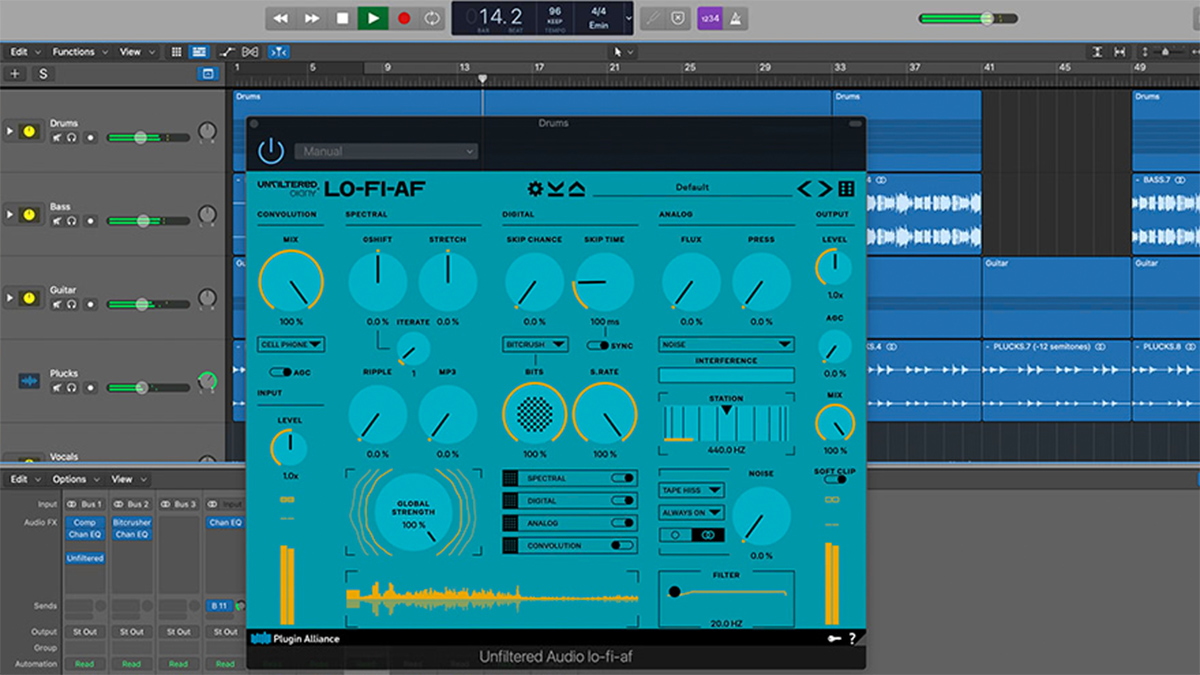Unfiltered Audio’s LO-FI-AF is a thoroughly degrading plugin that can add vinyl, cassette, CD and MP3-style audio artifacts
“The perfect plugin for when your other plugins sound too perfect”
Billed as “the perfect plugin for when your other plugins sound too perfect,” Unfiltered Audio’s LO-FI-AF is yet another effect that’s designed to make your audio sound worse.
OK, that might be a bit of an oversimplification, but the bottom line is that this is a plugin that’s all about degradation, and a celebration of what were once seen as unwelcome audio artifacts.
Using impulse responses, spectral shaping and other techniques, LO-FI-AF can recreate everything from the sound of vinyl records and cassettes to CD skips, MP3 chirps and radio interference.
You can even dial in some of that annoying chatter that you hear when you put your phone too close to one of your speakers.

You’re not restricted to using one of these effects at a time, either; there are four modules that can be toggled and reorganised into 24 different signal paths. So, it’s easy to create custom effect chains that will give you exactly the kind of busted-up sound you’re looking for.
All of this destructive action takes place on what’s described as an intuitive interface, and you can choose from 14 included skins.
LO-FI-AF runs on PC and Mac in VST/AU/AAX formats. The full price is $149, but you can currently purchase it for $130. A 14-day demo version is available, too.
Want all the hottest music and gear news, reviews, deals, features and more, direct to your inbox? Sign up here.
Find out more on the Plugin Alliance website.



I’m the Deputy Editor of MusicRadar, having worked on the site since its launch in 2007. I previously spent eight years working on our sister magazine, Computer Music. I’ve been playing the piano, gigging in bands and failing to finish tracks at home for more than 30 years, 24 of which I’ve also spent writing about music and the ever-changing technology used to make it.
